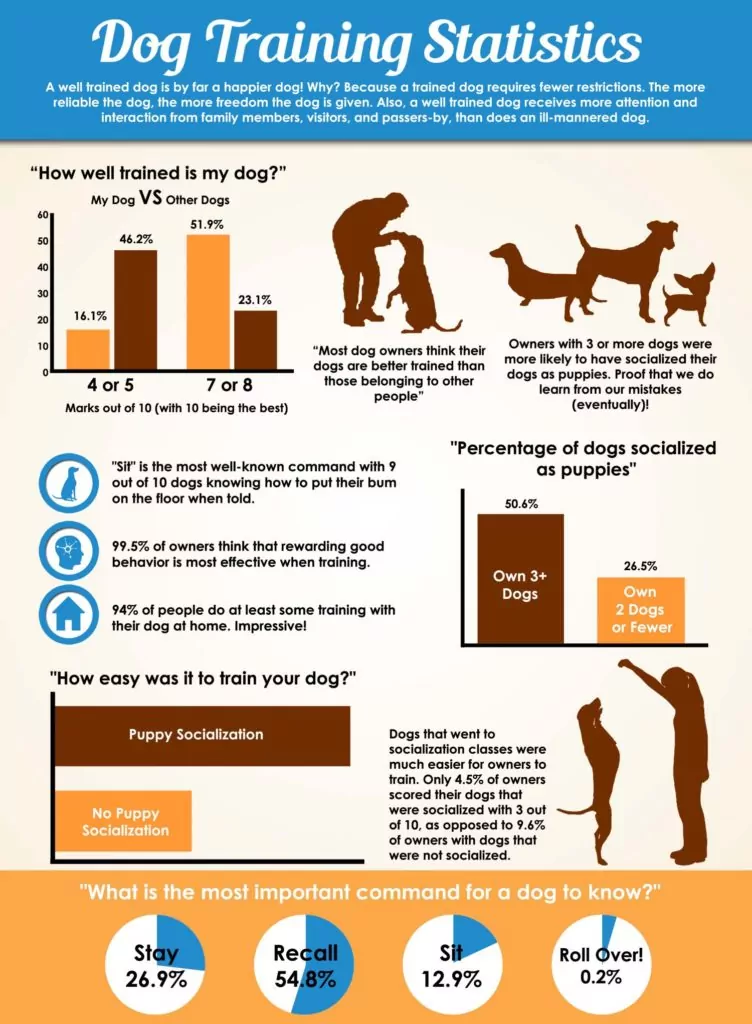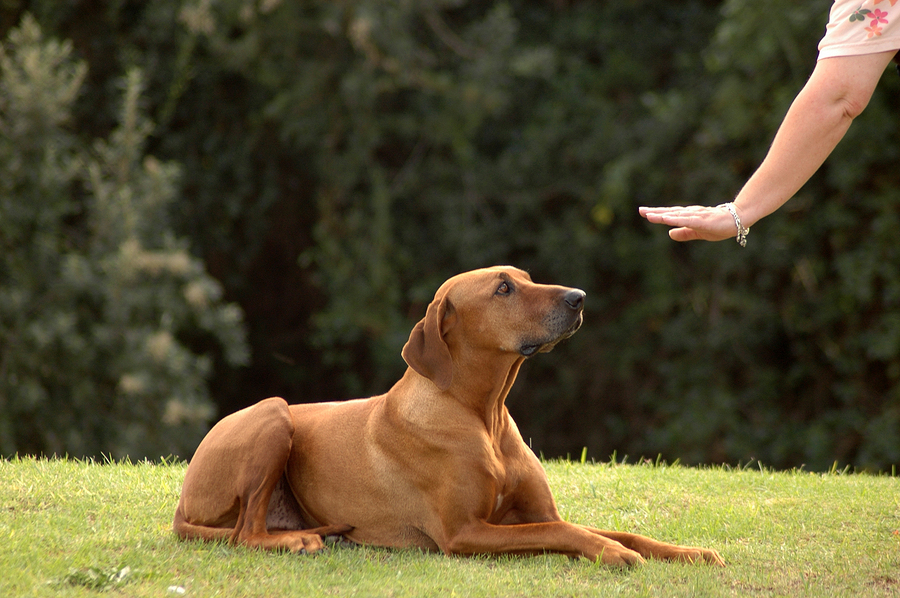Top Dog Training For Dogs Solutions to Improve Actions and Skills
Top Dog Training For Dogs Solutions to Improve Actions and Skills
Blog Article
Leading Pet Dog Training Methods for each Stage of Your Pet Dog's Life
Effective dog training is essential at every stage of a pet dog's life, as each phase presents special challenges and chances for growth - Dog Training For Dogs. From the fundamental bonding techniques required for young puppies to the tailored methods required for senior canines, recognizing these important periods can considerably enhance the human-animal bond. It is very important to recognize that training should advance together with a dog's growth, making certain that approaches stay reliable and pertinent. What specific strategies can be used to attend to the varying needs of your canine as it matures? The solution might surprise you.
Young Puppy Training Basics
Puppy training fundamentals lay the groundwork for a mannerly adult pet and entail several vital components that should not be ignored. The preliminary stage of training concentrates on developing a solid bond in between the young puppy and its owner, which is crucial for reliable interaction. Socializing is paramount; subjecting pups to different environments, people, and other pets aids them establish confidence and versatility, minimizing the likelihood of behavior issues later on in life.
Fundamental commands, such as rest, remain, and come, create the structure of obedience training. Using positive reinforcement strategies, such as treats and praise, urges preferred actions and fosters a positive discovering experience. Uniformity in commands and training sessions is vital, as young puppies thrive on regular and structure.
Furthermore, home training is a vital aspect of young puppy training. Developing a normal timetable for washroom breaks and using marked locations can help reduce crashes and advertise good practices. In general, a well-rounded technique to puppy training, integrating socialization, home, and obedience training, establishes the phase for a well-adjusted grown-up pet, ensuring a harmonious partnership between the pet and its owner.
Teenage Behavior Administration
As pups develop into adolescents, their actions can transform considerably, commonly offering new challenges for owners. This developmental phase, commonly occurring between six months and two years, is noted by increased power levels, interest, and a growing sense of independence. Comprehending these adjustments is critical for reliable habits management.
Teenagers may show rebellious tendencies, such as overlooking commands they formerly grasped or taking part in devastating habits. Consistency in training stays vital; enhancing found out habits with favorable reinforcement can assist neutralize these obstacles. Brief, appealing training sessions are important to keep their passion and focus.

In addition, establishing an organized routine can significantly boost an adolescent dog's sense of safety and security. Regular workout is important to direct their power positively, minimizing the likelihood of unwanted actions. By employing these methods, owners can efficiently browse the complexities of adolescent actions, cultivating a well-adjusted, happy canine friend.
Grown-up Pet Obedience Methods

Favorable support stays an essential technique; rewarding excellent actions with treats, praise, or play motivates conformity. Consistency is crucial; the exact same commands and rewards ought to be made use of by all household members to avoid confusion.
Incorporating training right into day-to-day regimens can likewise be efficient. Technique commands throughout walks or dish times, allowing training to blend seamlessly into day-to-day life. Engaging in organized tasks, like dexterity courses or obedience classes, can even more boost a canine's abilities while supplying important socializing possibilities.
It is necessary to acknowledge that grown-up pets may also exhibit stubbornness or complacency. Changing training methods to maintain their interest, such as varying benefits or presenting new commands, can assist suffer inspiration. In general, a recurring dedication to obedience training will certainly promote a mannerly and well balanced adult pet dog.
Elderly Pet Dog Adaptation Techniques
Recognizing the special requirements of elderly canines is important for ensuring their convenience and wellness. As dogs age, they might experience a decline in flexibility, vision, and cognitive feature, demanding tailored adaptation approaches.
First, think about customizing the living environment. Make sure that the home is easily accessible and secure; eliminate obstacles and give non-slip surfaces to stop drops. Additionally, think about using steps or ramps to assist them access their favored areas.
Second of all, workout must be gotten used to make up decreased endurance and joint health and wellness (Dog Training For Dogs). Take part in shorter, extra frequent walks, and incorporate gentle activities like swimming, which can be advantageous for arthritic joints
In addition, psychological stimulation remains essential. Usage easy problem toys or take part in scent job to keep their minds sharp, while avoiding overwhelming tasks that might discourage them.
Lastly, normal veterinary exams are vital to keep track of wellness adjustments and readjust treatment routines accordingly. By implementing these adaptation strategies, you can boost the lifestyle for your elderly dog, guaranteeing they age with dignity and easily.
Lifelong Learning and Enrichment
While pets of every ages benefit from finding out and psychological stimulation, lifelong enrichment is especially important for maintaining cognitive health and wellness and emotional well-being in both elderly and younger pet dogs. Engaging tasks not just enhance a pet dog's high quality of life yet likewise reinforce the bond in between the canine and its owner.
Enrichment can this page take various forms, consisting of interactive toys, Continue challenge feeders, and fragrance work, which stimulate a pet dog's detects and motivate analytical. Routine training sessions, integrating brand-new commands or tricks, keeps their minds sharp and promotes a sense of achievement. Socialization with various other dogs and people is similarly crucial, as it helps avoid behavioral issues and fosters adaptability.
Moreover, incorporating physical workout into a dog's regimen is necessary for general wellness. Activities like dexterity training, fetch, or long walks offer both physical and mental excitement, ensuring dogs stay pleased and involved.
Finally, take into consideration varying the setting by introducing new areas for playdates or walks. This change can reignite a canine's interest and enthusiasm for expedition. Lifelong understanding and enrichment not only contribute to a satisfying life yet also promote an unified connection with your canine friend.
Final Thought
Reliable dog training techniques evolve throughout a pet dog's life, dealing with the unique needs of each developmental phase. From developing fundamental abilities in pups to taking care of teenage see this page behaviors, enhancing obedience in grownups, and adjusting strategies for senior citizens, a comprehensive technique guarantees ideal interaction and actions. Emphasizing normal mental stimulation, socialization, and exercise cultivates a balanced and fulfilling life for dogs. Ultimately, consistent application of these methods contributes to a harmonious connection in between canines and their human buddies.
Efficient pet training is essential at every stage of a dog's life, as each phase offers distinct obstacles and opportunities for growth.Puppy training basics lay the groundwork for a mannerly grown-up pet and include numerous vital parts that ought to not be forgotten. Overall, a well-shaped approach to puppy training, integrating obedience, home, and socializing training, establishes the stage for a well-adjusted adult canine, ensuring a harmonious relationship between the animal and its proprietor.
Several pet dog owners might discover that grown-up pets, while usually even more stable in habits than their adolescent equivalents, still need regular training to keep obedience and excellent manners.Effective dog training methods evolve throughout a pet's life, attending to the unique demands of each developing stage.
Report this page